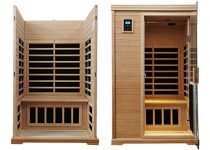How To Know When You Need More Calories For Your Workouts: Fuel Your Fitness!
You may need more calories for workouts if you feel fatigued or experience poor recovery. Noticeable weight loss can also signal a caloric deficit.
Engaging in regular exercise demands more than just determination and discipline; it requires an appropriate fuel supply to sustain energy levels and facilitate recovery. Understanding the delicate balance between calorie intake and expenditure is crucial for optimizing performance and achieving fitness goals.
Elevating physical activity typically increases the body’s energy requirements, which, if not met, can lead to decreased endurance, muscle mass, and a compromised immune system. To support your workouts, pay attention to your body’s signals, track your progress, and adjust your caloric intake to align with your increased energy demands. A focused approach to nutrition will not only bolster your training efforts but also enhance overall health and well-being.
Identifying Signs Of Inadequate Fueling
Knowing whether you’re fueling your body adequately for workouts can be as critical as the exercise itself. If you find yourself constantly struggling through your fitness regimen, you might need to reevaluate your caloric intake. Insufficient calorie consumption can undermine your hard work and stall progress. Let’s explore some clear indicators that suggest it’s time to increase your calorie intake for optimal performance and recovery.
Frequent Fatigue During Exercises
Fatigue is the body’s SOS, signaling an energy shortfall. Frequent, inexplicable tiredness, despite adequate rest, could point to insufficient caloric fuel. Persistent weariness consistently undermines your ability to sustain intensity during workouts, cutting into the gains you seek from your exercise routine.
Extended Muscle Soreness And Slow Recovery
If you’re experiencing prolonged muscle soreness beyond the typical post-workout window, this is your body’s clue that it’s not receiving enough nutrients for repair. Slow recovery can halt your training progress and may increase the risk of injury. The essential calories and nutrients are not only fuel for your workout but are also crucial for the repair and rebuilding phase that follows.
Inability To Complete Routine Workout Sessions
A telltale sign of inadequate calorie intake is a consistent struggle to complete workouts that you previously managed with ease. If you’re cutting your sessions short or lowering your regular weights and reps, it’s a strong indication that your body lacks the energy it requires to sustain proper exercise intensity and volume.
Listen closely to your body as these signs unfold, and take action by reevaluating your nutritional needs to support your fitness journey more effectively. Ensuring a proper calorie intake is as crucial as the workout itself to achieve the results you aspire to.
How To Know When To Increase Workout Calories
Fueling your body for workouts is akin to adding gasoline to a car; without the proper fuel, it won’t perform optimally. Knowing when to increase your calorie intake can significantly enhance your exercise regimen and help you achieve desired fitness goals. At times, it becomes essential to adjust your calories based on your physical demands. Let’s delve into how you can recognize the need for more energy to power through your workouts.
Monitoring Physical Responses Post-exercise
Assessing how your body reacts after exercising is crucial in determining your calorie requirements. Warning signs indicating that you might need additional calories include:
- Extended Muscle Soreness – Soreness beyond the typical recovery period.
- Energy Drain – Feeling unusually tired or fatigued instead of revitalized post-workout.
- Sluggish Recovery – Slow progress or regression in workout performance.
If you notice these symptoms persistently, it’s a clear signal your body may benefit from a higher calorie intake to support recovery and performance.
Calculating energy expenditure for workout typesCalculating Energy Expenditure For Workout Types
The type of workout you engage in has a direct impact on your calorie burn. A table categorizing various exercises and their approximate calorie expenditure can guide you:
| Workout Type | Average Calories Burned per Hour |
|---|---|
| Cardio activities (running, cycling) | 500 – 1000 |
| Strength training | 300 – 500 |
| High-Intensity Interval Training (HIIT) | 400 – 600 |
| Yoga/Pilates | 180 – 360 |
Utilizing a fitness tracker or calorie calculator tailored to your individual stats (age, weight, height) and the intensity of your workout can help you pinpoint a more personalized calorie expenditure.
Evaluating persistent hunger as an indicatorEvaluating Persistent Hunger As An Indicator
Persistent hunger can be a potent indicator that your body needs more fuel. Listening to hunger cues is essential. Typical signs include:
- Feeling hungry shortly after a meal.
- Cravings for high-energy foods, particularly carb-rich options.
- An overall increase in appetite on workout days.
Consistently feeling hungry, especially after increasing workout intensity or duration, should not be ignored as it signifies your body’s need for more calories to keep up with expended energy.
Matching Diet With Fitness Regimen
Welcome to the nexus of nutrition and fitness where caloric intake is not just about eating more or less, but about eating right. Your body demands proper fuel to match the vigor of your workouts. Hence, identifying when to increase your calories becomes crucial, often more art than science. Let’s break down the essentials to ensure your diet is in harmony with your fitness goals.
Recognizing The Role Of Macronutrients
Fueling your body with the ideal balance of macronutrients is key to maximizing workout performance and recovery. Every macronutrient has a specific function:
- Proteins build and repair muscle tissue.
- Carbohydrates provide immediate energy, crucial during high-intensity training.
- Fats serve as a long-term energy source, essential for endurance activities.
If you experience fatigue or slow recovery, an imbalance in macronutrient intake may be the culprit. Listen to your body; an increase in hunger, particularly craving for certain types of foods, could hint at what your diet is lacking.
Adjusting Meal Timing For Optimal Energy
Nutrient timing plays a pivotal role in fuelling your workouts. The timing of your meals should align with your training schedule to ensure peak performance. Here’s a quick guide:
- A meal rich in complex carbohydrates 3-4 hours before exercise provides sustainable energy.
- A smaller snack, closer to your workout, can top off your energy reserves.
- Post-workout, prioritize protein and carbohydrates to aid in recovery and muscle replenishment.
Adjustments may be necessary based on your individual response. If you notice energy dips or prolonged fatigue, consider revising your meal timing around workouts.
Portion Sizing And Frequency For Intense Workouts
Determining the right size and frequency of your meals is vital, especially when your workouts intensify. A more rigorous regimen demands bigger fuel loads. Structuring your food intake can be done in two ways:
- Larger meal portions can bolster calorie intake without increasing meal frequency. This approach suits individuals with higher caloric needs who prefer fewer meals.
- Increased meal frequency with smaller, more regular meals can keep energy steady throughout the day. Athletes often favor this to maintain a constant influx of nutrients.
Either method should focus on nutrient-dense foods. Include a variety of whole grains, lean proteins, and healthy fats to ensure each meal packs a punch.
As your training demands escalate, monitor your body’s response to your current diet. Persistent exhaustion, decreased performance, or weight loss may signal the need to up your calorie intake.
:max_bytes(150000):strip_icc()/6-of-the-best-foods-to-eat-more-of-when-youre-exercising-more-according-to-dietitians-382188df9d8b4d0f8c069afb3a1e532d.jpg)
Credit: www.eatingwell.com
Fuel Your Fitness Through Mindful Eating
Fuel Your Fitness Through Mindful Eating: striking the right balance between your calorie intake and your workouts can be a tricky task. The quantity and quality of calories consumed should align with your fitness goals and the rigor of your exercise routine. Understanding when your body needs more fuel is pivotal for optimizing your performance and recovery. Mindful eating is not just about the foods you choose; it’s about recognizing and responding to your body’s hunger signals before and after workouts. Here’s how to keep your tank topped up and your body primed with the right energy sources.
The Importance Of Pre And Post-workout Meals
Eating the right foods at the right time enhances your performance during exercise and aids in recovery afterwards. Pre-workout meals should focus on carbohydrates, providing a quick source of energy. Adding a moderate amount of protein can help reduce muscle damage during the workout.
Post-exercise, your focus should shift towards replenishment. A combination of proteins and carbohydrates is essential to repair muscle tissues and refill glycogen stores. Consider these meal timing guidelines to maximize benefits:
- Pre-Workout: Consume a meal 2-3 hours before exercising, or a small snack 30-60 minutes prior.
- Post-Workout: Aim to refuel within 45 minutes after exercise, the prime window for muscle recovery.
By paying attention to these meal timings, you can ensure your body has the necessary nutrients when they are most needed.
Hydration’s Role In Caloric Absorption
Hydration is often overlooked but plays a crucial role in how your body processes and uses calories. Proper fluid intake is essential for digesting food and facilitating nutrient transport to your muscles. Additionally, remaining hydrated optimizes blood flow and oxygen delivery during exercise, which enhances caloric burn and efficacy.
Here are some hydration tips to keep in mind:
- Drink water throughout the day, not just during workouts.
- Aim for about 17-20 ounces of water 2-3 hours before exercising.
- Consume 7-10 ounces every 10-20 minutes during activity, depending on the intensity.
- After workouts, rehydrate based on your body’s fluid losses (about 16-24 ounces for every pound lost).
Incorporating these hydration strategies will help ensure the calories you consume are effectively supporting your fitness journey.
When To Consult A Nutrition Specialist
Embarking on a fitness journey requires a blend of physical activity and nutritional support to meet the energy demands of your workouts. Knowing when your body needs more calories can be a pivotal factor in achieving your fitness goals. At times, despite your best efforts to adjust your diet, you might still feel like you’re running on empty. This is when consulting a nutrition specialist can make all the difference. They can provide you with the tailored guidance necessary to align your calorie intake with the level of physical activity you’re undertaking.
Persistent Energy Deficits Despite Diet Adjustments
Do you consistently feel fatigued, or find that your performance during workouts is not improving? Despite increasing your calorie intake or tweaking your diet, if these issues persist, it’s a strong indicator that your current nutritional strategy may not be aligned with your energy needs.
- Unintended weight loss could be signaling that your body is consuming muscle for fuel due to inadequate calorie consumption.
- Recovery takes longer than usual post-workout, and you experience muscle soreness for extended periods.
- Irritability and mood swings due to low energy reserves impact not just your workouts but your daily life.
A nutrition specialist can examine these symptoms and delve into your lifestyle habits to identify the core issues. They’ll assess your dietary history and help you understand the underlying causes of your energy deficits.
Crafting A Personalized Meal Plan For Fitness Goals
Fitness and nutritional needs are highly individualistic, and what works for one person may not work for another. A tailored meal plan is crucial for reaching peak performance levels and achieving specific fitness outcomes. Nutrition specialists can create a personalized diet, considering multiple factors:
| Aspect | Consideration |
|---|---|
| Activity Level | Type and intensity of workouts. |
| Body Composition Goals | Gaining muscle or losing fat. |
| Dietary Preferences/Restrictions | Vegetarian, vegan, allergies, etc. |
| Metabolic Rate | Basal metabolic rate and daily energy expenditure. |
With your unique needs as the cornerstone, the specialist provides the necessary adjustments to your calorie intake, macro distribution, and meal timing to fuel your workouts effectively.
Moving Beyond Calories: Holistic Fitness Fuel
Understanding the intricacies of workout nutrition extends far beyond just counting calories. In the realm of holistic fitness fuel, it’s about fine-tuning your body’s needs to ensure you’re not just meeting energy requirements, but also supporting your overall health and performance goals. As you hone in on perfecting your workout regimen, it’s crucial to recognize the signs that your body may need more than just additional calories—it needs the right kind of fuel.
Incorporating Micronutrients And Supplements
While macronutrients provide the bulk of our dietary calories, micronutrients and supplements play a pivotal role in facilitating physiological functions that are vital for athletic performance and recovery. Here’s how to ensure your diet isn’t lacking:
- Vitamins and Minerals: A balanced intake of essential vitamins and minerals supports functions such as muscle contraction, blood health, and bone strength.
- Performance Enhancers: Certain legal supplements can help enhance your workout. For instance, creatine for muscle energy, beta-alanine for endurance, and branched-chain amino acids (BCAAs) for muscle recovery.
- Electrolyte Balance: Especially important for endurance athletes, electrolytes regulate hydration and nerve function. Adequate levels prevent cramping and fatigue.
To fully optimize your nutrition, consider a blood test to find potential deficiencies and consult with a healthcare professional before starting any new supplement regimen.
Understanding The Role Of Rest And Recovery
Efficient workouts don’t solely depend on what you consume; they’re also inextricably linked to how well you rest and recover. Acknowledge these signs that your body might require more downtime:
- Persistent Fatigue: Continual tiredness despite adequate sleep and nutrition may indicate overtraining.
- Delayed Onset Muscle Soreness (DOMS): If soreness lasts more than 72 hours post-workout, your muscles need more time to repair.
- Compromised Performance: A notable decrease in performance could be a sign that your body hasn’t fully recovered.
Integrating active recovery days, prioritizing sleep, and employing strategies such as foam rolling and massages can greatly improve muscle recuperation and overall well-being.
Remember, giving your body the right blend of nutrients, along with ample rest, will fuel not just a stronger workout, but a healthier life.
Conclusion
Understanding your body’s needs is crucial for workout success. By recognizing the signs for increased caloric intake, you’ll fuel your fitness journey effectively. Listen to your body, monitor your performance, and consult with nutrition experts if needed. Remember, the right calorie balance enhances workout results.
Stay informed, stay healthy, and keep moving forward.
Table of Contents


